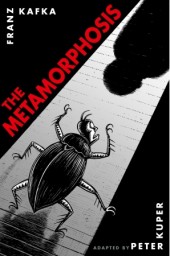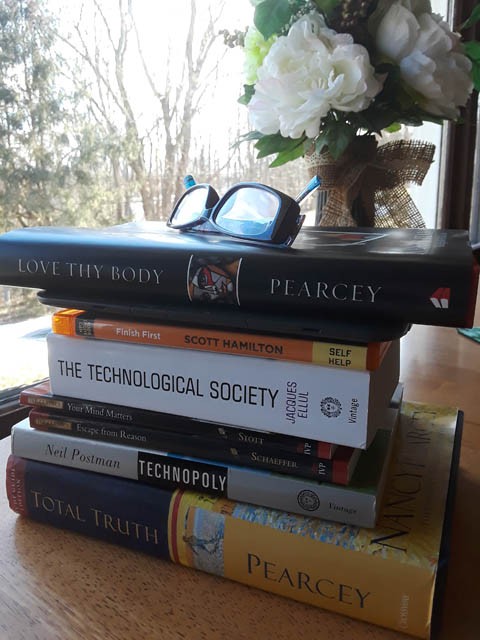The Metamorphosis
 This strange little novella is a staple of college literature classes. But I didn’t read it till I was studying for my graduate exams. It intrigued me, and for some reason I thought of it again recently and decided to read it again.
This strange little novella is a staple of college literature classes. But I didn’t read it till I was studying for my graduate exams. It intrigued me, and for some reason I thought of it again recently and decided to read it again.
It begins this way:
One morning, as Gregor Samsa was waking up from anxious dreams, he discovered that in his bed he had been changed into a monstrous verminous bug. He lay on his armour-hard back and saw, as he lifted his head up a little, his brown, arched abdomen divided up into rigid bow-like sections. From this height the blanket, just about ready to slide off completely, could hardly stay in place. His numerous legs, pitifully thin in comparison to the rest of his circumference, flickered helplessly before his eyes.
So that’s the basic situation. How does Gregor handle it? How does his family respond? How does it all turn out? These are the questions raised as the story unfolds.
It’s been “interpreted” psychoanalytically in all kinds of ways. When I finished it, I found I simply wanted to take a step back and think about the broad outlines of the story: Gregor is transformed into something loathsome, is increasingly isolated within the enclosures of his body and his room, and eventually dies. His family responds without any real compassion, dutifully supplying scraps of food but becoming gradually more neglectful. They never understand that it is still Gregor inside the transformed exterior. Last but not least, they are transformed themselves into both more independent people — previously Gregor was the provider for the family — and more bestial, callous people. When he dies, they feel released.
 It’s thoroughly depressing. It has a way of getting under the skin because it raises questions about what is bug-like or bestial in modern life — how our humanity may be affected by our values and routines and expectations of one another. Kafka develops the incredible, fantastical tale using a realistic, documentary tone. To me the whole thing reads like a dream where the strangest things can happen, but in our dream selves we don’t question them; we adapt and react and live in the alternative terms of the dream.
It’s thoroughly depressing. It has a way of getting under the skin because it raises questions about what is bug-like or bestial in modern life — how our humanity may be affected by our values and routines and expectations of one another. Kafka develops the incredible, fantastical tale using a realistic, documentary tone. To me the whole thing reads like a dream where the strangest things can happen, but in our dream selves we don’t question them; we adapt and react and live in the alternative terms of the dream.
Maybe it’s this — Kafka’s creation of an air-tight fictional illusion — that explains why The Metamorphosis is pretty much universally lauded as a masterpiece. But like so many masterpieces, it disturbs, and leaves me with the sense that I see bits and pieces but miss many facets of its meaning. I can’t say as it was enjoyable to read; I’m glad to move on to something else now. But it does send me into this day with a heightened sense of how we treat one another.



3 Comments
Amy @ Hope Is the Word
Kafka is definitely not light reading, and I applaud you for getting through this with no external motivation! :-). Go read something fun now! :-)
Janet
Definitely ready for some brain candy!
Amy @ Hope Is the Word
We sang that ee cummings poem (set to music, of course) in my high school chorus. Now it’s running through my head. It’s a good one. :-)